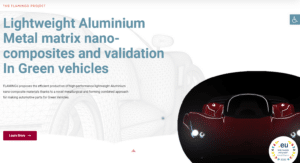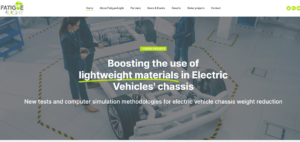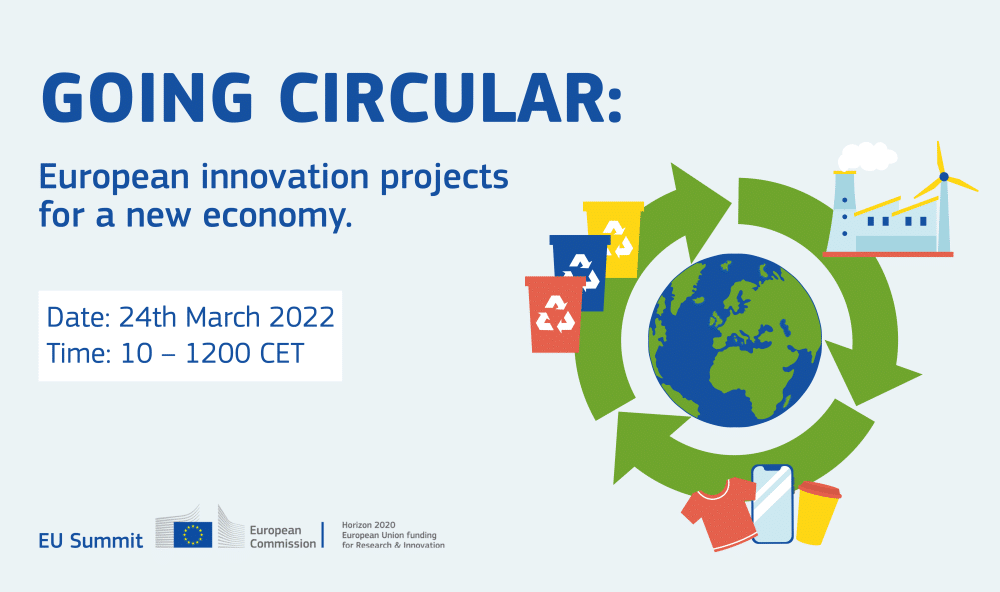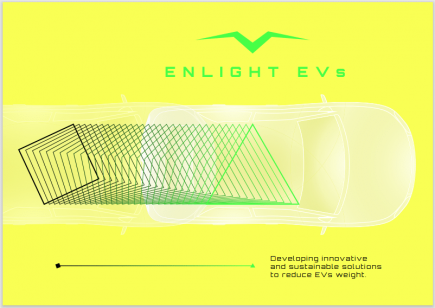Collaborations
ALMA supports collaborative efforts to innovate and improve the results of projects. For this reason, ALMA is collaborating with other EU H2020 funded projects that are working on similar or complementary goals. In this first stage, the cooperation is mostly geared towards sharing communications and disseminations activities so as to give target audiences a broader view on the latest developments and opportunities. The projects are also actively looking for opportunities for a more technical collaboration.
EnlightEVs Cluster

EnLightEVs is developing innovative solutions, tested in industrial pilots, that can be rapidly applied in the automotive market to reduce EVs weight, while considering structural integrity, passengers’ safety, and sustainability, through eco-design and circular practices.
Collaboration Partners
ALMA currently has collaboration agreements with the following partners, together they form the EnlightEVs cluster.

LEVIS – Light Materials for Electrive Vehicles
LEVIS’ aim is to develop lightweight components for electric vehicles using eco-design and circular approaches. Our consortium – built by industrial and research partners from seven countries – envisages to demonstrate the technical and economic feasibility of producing these components in three real-case demonstrators at a large scale: a suspension arm, a battery box set and a cross car beam.
Website: » www.greenvehicles-levis.eu

REVOLUTION – The future is now
Supporting the Electric Vehicle REVOLUTION through maximising EV Range and End-of-Life Vehicle Recovery through optimisation of recycled plastics and advanced light materials.
Website: » www.revolution-project.eu

FLAMINGo will propose a novel industrial manufacturing route for the efficient production of high-performance lightweight Aluminium composite materials thanks to a novel metallurgical and forming combined approach for making automotive parts. The intensification of use of the Aluminum composites will be driven mainly by the battery-electric vehicle (BEV) technology that are forcing automakers to look for innovative ways to lightweight the vehicles. The goals of FLAMINGo will be related to the manufacturing of a strengthened Aluminum Metal Matrix nano-Composites Al-MMnC with elevated properties, in terms of strength and stiffness, compared to current Al alloys used in automotive. FLAMINGo will provide engineering solutions to substitute steel components in BEV automotive parts and achieve a substantial reduction of weight.

Fatigue4Light project is focused on the development of new tests and computer simulation methods to better estimate the fatigue life of chassis components and to select the optimal materials for lighter vehicle chassis.
The project will apply new materials tailored to the requirements of vehicle chassis, such as advanced high-strength steels, special automotive stainless steels, high-strength aluminium alloys and hybrid metal-fibre reinforced polymeric materials.
The goal is to reduce vehicle chassis weight compared to the current solutions, taking into account eco-design and circular economy aspects.
Collaboration Activities
These are some of the activities that ALMA has participated in with other projects:
Putting sustainability by first assessing environmental impacts and costs using a circular approach.
The project will begin with an assessment of the environmental aspects of the product from a circular perspective (Life Cycle Assessment-LCA) and accompanying cost considerations (Life Cycle Cost-LCC) that will serve as the guiding principle of the project.
Refining new, innovative material technologies.
On the technical side, the project will deal with the finetuning of two existing material families suited for lightweight structural applications in road transport.
Design the most promising vehicle multi-material structure by presenting an affordable weight reduction with highest possible performance.
The vehicle architecture and design will be evolved using eco-design principles towards a novel concept of a fully electric vehicle based on innovative multi-material structure culminating into reduced mass and lower environmental impact.

Going Circular - EU H2020 Projects Presentation and Discussion
This event, that took place on March 24th 2022, presented a wide range of EU-funded circular economy innovation projects. During this event we brought together policy makers, representatives from industry and academia who communicated on a wide range of EU-funded innovations to contribute to a circular economy.
Areas covered included innovative recycling, plastics and textile circularity, and green automotive innovations.
View the Event
Circular demonstration & model-based characterization.
Eventually a full virtual verification of the engineering approach and demonstration of the circular use in real deployment conditions will be performed evidencing that the project proposed strategy has reached an integrated and mature level.


